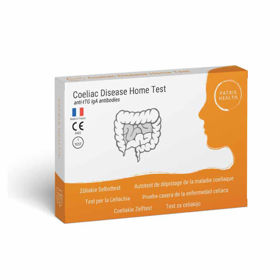Customer question:
What are the signs of celiac disease? Anonymous customer's question
Pharmacist's answer:
Celiac disease is a digestive problem that affects the small intestine. It prevents your body from absorbing nutrients from food, which is a significant health problem. Although the symptoms of celiac disease can vary greatly, a person with celiac disease may have several symptoms that appear occasionally. If you have celiac disease, you may experience digestive problems or other symptoms. Digestive symptoms are more common in children than in adults.
Digestive symptoms of celiac disease may include:
- lactose intolerance due to damage to the small intestine
- loose, greasy, and bulky stools
- nausea or vomiting
- abdominal pains
- chronic diarrhea
- flattening
- closure
- gases
Diarrhea is a common symptom of celiac disease. The problem starts in the small intestine, which cannot absorb certain nutrients (malabsorption). Malabsorption can also be caused by stools that contain abnormally high-fat levels (steatorrhea). Because of this, stool can have an unpleasant smell and a greasy texture.
Malabsorption can lead to malnutrition and many other health conditions resulting from a lack of nutrients. In children, malabsorption can cause stunted growth and development. In children with celiac disease, the inability to absorb nutrients at a time when it is essential for average growth and development can cause:
- damages to the enamel of permanent teeth
- delayed puberty
- failure to thrive, meaning the baby or child weighs less or gains less weight than expected for their age
- mood changes or feeling irritable or impatient
- slow growth and low height
- weight loss
Some people with celiac disease have symptoms that affect other body parts. These symptoms may include:
- herpetiform dermatitis
- fatigue or exhaustion
- pain in joints or bones
- mental health problems such as depression or anxiety
- reproductive problems in women and girls, which may include infertility, late onset of menstruation, missed periods or recurrent miscarriages, and male infertility
- symptoms such as canker sores, dry mouth or red, smooth, and shiny tongue
- symptoms of nervous system problems such as headaches, balance problems, seizures or peripheral neuropathy
Some people with celiac disease have no symptoms but still have a positive blood test. Still, other people may have a negative blood test but a positive intestinal biopsy test. However, all people with identified celiac disease are sometimes at risk of complications, regardless of their symptoms.
Symptoms of celiac disease can vary and range from mild to severe and often come and go shortly after. Mild cases may not cause noticeable symptoms, and the condition is often only discovered during other testing.
In non-classic celiac disease, patients may have mild gastrointestinal symptoms without clear signs of malabsorption or may have seemingly unrelated symptoms. They may suffer from bloating and abdominal pain, and other symptoms such as:
- iron deficiency anemia
- chronic fatigue
- chronic migraine
- peripheral neuropathy
- unexplained chronic hypertransaminemia
- reduced bone mass and bone fractures
- lack of vitamins (folic acid and B12)
- difficulties losing weight
- late menarche/early menopause
- unexplained infertility
- defects of tooth enamel
- depression and anxiety
- dermatitis herpetiformis
Interesting reading: Celiac diet










 Facebook
Facebook
 Instagram
Instagram
 info@moja-lekarna.com
info@moja-lekarna.com

